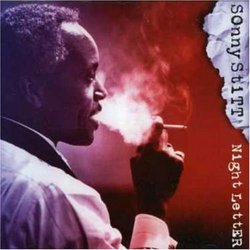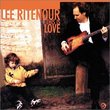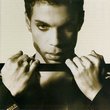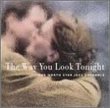| All Artists: Sonny Stitt Title: Night Letter / Soul Shack Members Wishing: 1 Total Copies: 0 Label: Prestige Release Date: 7/9/1996 Genres: Jazz, Pop Style: Bebop Number of Discs: 1 SwapaCD Credits: 1 UPC: 025218516525 |
Search - Sonny Stitt :: Night Letter / Soul Shack
 | Sonny Stitt Night Letter / Soul Shack Genres: Jazz, Pop
|
Larger Image |
CD DetailsSimilarly Requested CDs
|
CD ReviewsRelaxed soul-jazz sessions from the 60's J. Levinson | Media, PA USA | 09/30/2003 (3 out of 5 stars) "Two of Sonny Stitt's 1960's Prestige releases are reissued in full on this single CD. The first six tracks from "Soul Shack" (1963) are an even mix of standards and basic originals with organist Jack McDuff, bassist Leonard Gaskin and drummer Herbie Lovelle. The tracks from the original "Night Letter" album (1969) find Stitt playing a Varitone sax, an electrified tenor which he used often in the late 60's. His tone remains recognizable and he is in fine form on standards and originals played with a quartet that includes organist Gene Ludwig, Pat Martino on guitar, and drummer Randy Gelispie. Nothing revolutionary occurs, but there are worthwhile solos from Stitt, Martino, McDuff and Ludwig. The uptempo "You'll Never Know" is one of the highlights, with drum breaks from Gelispie punctuating the sax, organ, and guitar solos." A surprise and most enjoyable Bomojaz | South Central PA, USA | 09/05/2005 (5 out of 5 stars) "What's this? A subdued Sonny Stitt?! Impossible - or so I thought until I heard this CD. It's a compilation of two Prestige LPs, both with organ: SOUL SHACK (1963) and NIGHT LETTER (1969). On both recordings Stitt goes out of his way to play pretty; not gutless or bland, but pretty. SOUL SHACK, the tune, is a terrific 12-bar blues taken up tempo, and Sonny just skips over the changes as lightly as could be. HAIRY is another relaxed blues, taken at medium tempo. The second half of the CD features Stitt on Varitone (an electrified tenor) and when I saw that I expected the worst, but I was pleasantly surprised. In fact, most of the time it's hard to tell he's playing an altered horn at all, and he does no tricks with it. Gene Ludwig is on organ on these sides, and he plays with a great deal of soulful feeling. There is not a single misstep on the entire CD. Excellent!" Meaningful Missive Samuel Chell | Kenosha,, WI United States | 07/02/2007 (5 out of 5 stars) "Stitt detractors will tell you he's a "sytematic" player, all about "closure" (he loves the tonic note) and formulaic licks. It's true there was rarely anything surprising about Sonny Stitt's playing after the 1940s. Never a proponent of innovation, creativity, or orginality, he's nonetheless the gold standard for all saxophonists. No one executed with better technique, articulations, tone--and the music was all about clarity, logic, and communication. In a famous '65 interview, he denounces innovation, saying no one can play more than Tatum did and that he tries to emulate Tatum who, according to Sonny, knew that a musician is "supposed to entertain the average person" by playing a "simple message." On the other hand, Oscar Peterson said that Sonny Stitt was the one musician he had to be expecially "careful" with, since his "linear inventiveness" was so complex an accompanist could easily be thrown by him.
A paradoxical musician indeed, and both qualities come through on these two sessions, with the emphasis more on the "simple message." Throughout the '60s Sonny favored Hammond B3 accompaniment (he would develop an aversion to the instrument in the '70s). Jack McDuff is no match for Sonny's favorite organ team--Donald Patterson and drummer Billy James--but he's an effective accompanist, given a big assist by bassist Victor Gaskin. Stitt's playing beginning with the opening Jule Styne standard, "Sunday," is so relaxed, inviting and assured that it's easy to overlook the blazing speed and accuracy of his interjections between melody notes--as pyrotechnical as ever but, like Art Tatum, never allowing technique to interfere with sense and meaning. This session is far preferable to one like "A Jazz Message," where Sonny calls the same tune, "Sunday," on a set with Art Blakey and the Jazz Messengers. Bad call, a rare bad day for Stitt. The "bonus" on this CD is the inclusion of a second LP featuring the little-heard organist, Gene Ludwig, accompanying Stitt with the great Pat Martino on guitar. Unlike Brother Jack, Ludwig eschews the bass player in favor of the B3 pedal-board for a tighter, truer tenor-plus-organ session. And on this date at least, he out-plays, out-swings McDuff. Stitt's solo on the "I Got Rhythm Changes" of "Stringing the Jug" is complex yet accessible, fast yet perfectly structured. Good thing it's Martino who has to follow him. One caveat: Sonny employs his Selmer Varitone on this second session but with utmost taste. The program is a gem--13 American pop and jazz standards (even "real" oldies like "Pretend,""For You," "You'll Never Know," "Love Nest"). Van Gelder may not be able to record a "true" piano sound, but with organ he always lives up to his reputation. No excuse whatsoever for this one not being in print. Sometimes I suspect musicians simply would rather not be reminded of what it takes to be the complete musician. Forget the Art Tatums and Sonny Stitts: be original!" |

 Track Listings (13) - Disc #1
Track Listings (13) - Disc #1

